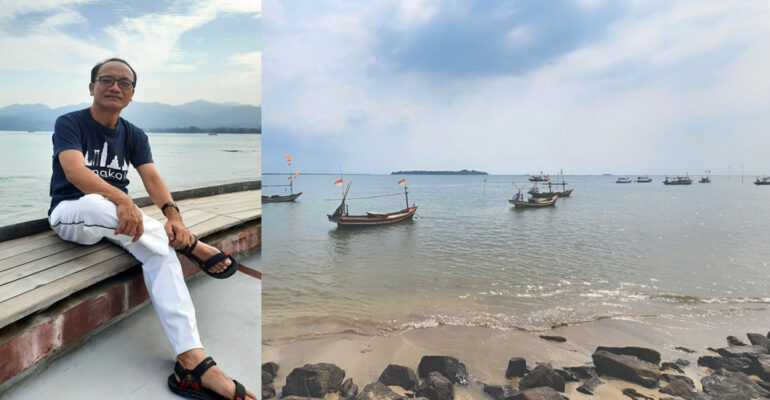Prof Tri Prartono Explains the Geochemical Role of Sediment Heavy Metals in Assessing Indonesian Ocean Health

Professor of the Faculty of Fisheries and Marine Science of IPB University, Prof Tri Prartono explained the role of sediment heavy metal geochemistry in assessing marine health in Indonesia.
He said that heavy metal analysis is important for assessing the Seawater Quality Index (QI) as part of the clean marine waters assessment in the Indonesian Ocean Health Index.
“The Clean Marine Waters Assessment has not considered heavy metal analysis, but only suspended solids, dissolved oxygen, oil and grease, total ammonia and phosphate content according to the reference in the Minister of Environment and Forestry Regulation No. 27 of 2021 in appendix III,” said Prof Tri in the Press Conference of IPB University Professor Scientific Oration (23/1).
Prof Tri explained that the assessment of heavy metals in water and sediment both in total and geochemical partitioning during the 2015-2024 period had been carried out in various parts of Indonesia, and there were indications of pollution.
“For example, in the sediments of Jakarta Bay, nickel, arsenic, cadmium, and mercury metals in the sediments of Jakarta Bay have exceeded the quality standards,” he said.
Prof Tri continued, the geochemical partitioning analysis also shows the composition of sediment metals that are potentially easily absorbed and not easily absorbed by organisms varies.
“For example in Jakarta Bay, metals lead, cadmium, copper, chromium, zinc, and nickel in Jakarta Bay sediments appear more dangerous than nickel, arsenic, copper, zinc, and chromium in Merauke coastal sediments,” he said.
Prof Tri also highlighted the need for better coordination and data collection and suggested creating a portal to enter heavy metal geochemical data.
“In my opinion, it would be good if there is a portal where everyone can enter data. So there must be an organization that collects data,” he said.
Regarding policy, Prof Tri said there should be additional new regulations for heavy metal analysis in sediments on environmental quality standards regulations that must be agreed upon by experts.
“Well, it’s just a matter of making an agreement, the important thing is actually in this regulation is just an agreement. The agreement of these experts. To see okay, we agree because this is related to legality issues so that we have the same reference,” he said. (dr) (IAAS/RUM)



